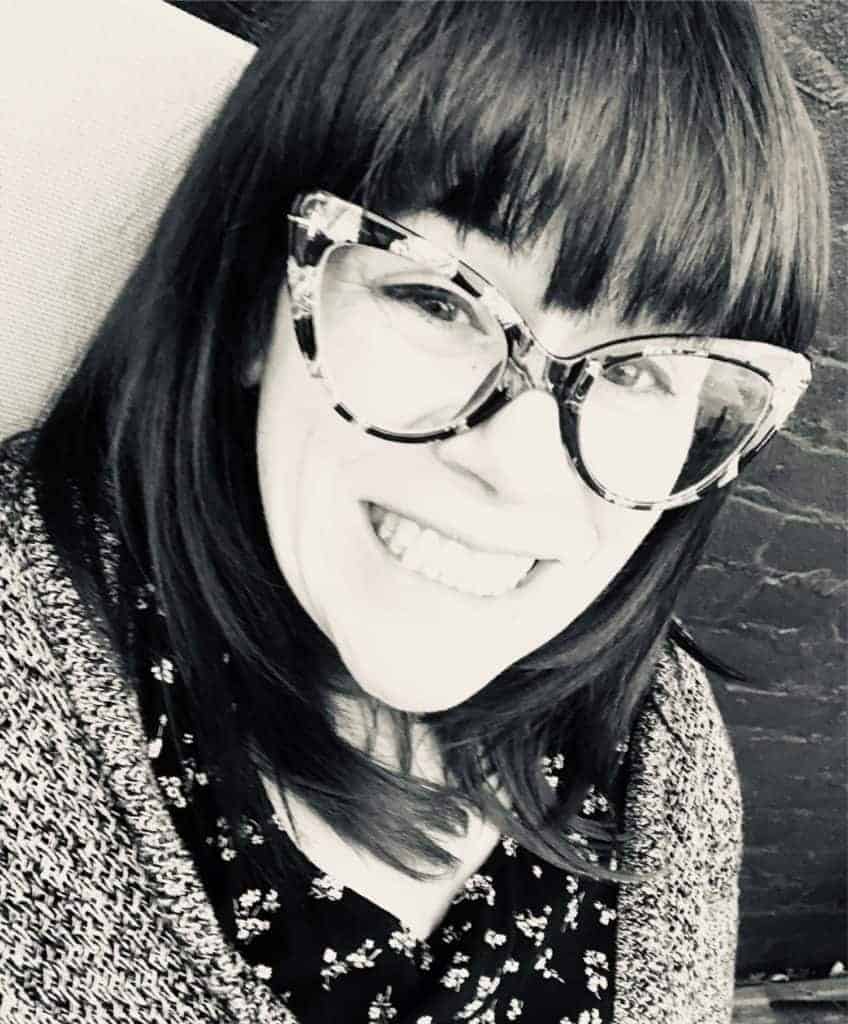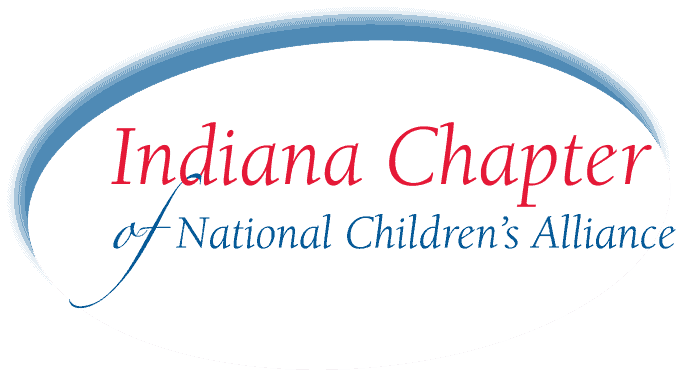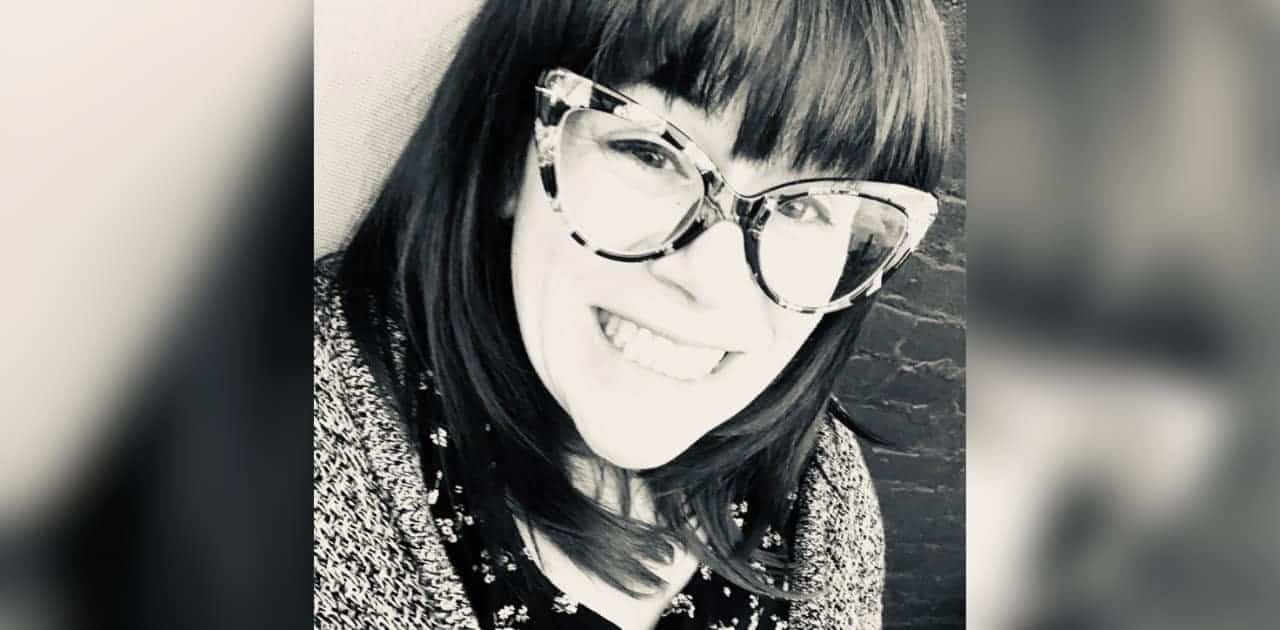Kristina Lesley gets a lot of emails. Her inbox includes questions from moms and dads about their case, internal work-related messages from her team, and the usual junk mail collection. One email that arrived earlier this September stood out: it said she was the recipient of the first annual Indiana Coalition to End Sexual Assault and Human Trafficking’s Outstanding Service Awards. Lesley’s work with children in her role as Heartford House’s Victim Advocate was noted as “exemplary”.

Lesley was nominated for her work in the category of victim advocates working with children by Heartford House Executive Director Jennifer Bushore-Barry. “I had to ask her if this was for real,” says Lesley. “But she confirmed it. I don’t know what she wrote in my nomination, but obviously it was good!” She adds with a laugh.
Lesley has been with the Tippecanoe County CAC for three years, all of which as a victim advocate. Before working directly for the CAC, she volunteered and interned there. “Advocacy is my passion,” she says.
“I love working with families and meeting their needs. I feel like every family has a different story,” Lesley says. “This job is completely gray. You can have minimum standards, but you can’t treat every family the same. It’s a lot of active listening, following up, crisis intervention.”
Victim advocates are sometimes obscure to outsiders and even internal colleagues within child advocacy centers. A victim advocate’s work oscillates between helping people understand their next steps for their case and something close to therapy.
“I’m a big advocate of not giving a sheet of paper and saying, ‘Here, call these numbers’. For a period of time, family members are here, spilling their heart to you, and they need your help. And then they’ll let you know when they don’t need it anymore,” says Lesley.
The award for ICESAHT came as a surprise. And while there was no formal ceremony or event this year because of COVID-19, Lesley says she’s, “immensely grateful.” “But I didn’t do any of my work for this award. It’s enough that my coworkers thought of me to nominate me,” she says. Without pausing, she adds, “When I can do something to make a child’s life better, that’s my award.”
Lesley’s always been on a trajectory to work with kids. The first of her three degrees was in child development, straight out of high school. Not long after she got a job at what was Tippecanoe County Child Care, a program mixed with Head Start. “I worked there for a couple of years and I found that I loved being the teacher and being with the kids,” she says.
“When you work with people, you find many are under a lot of stress. Things like ‘I just got off work, my car won’t start, and I don’t know what to do about food tonight’,” she says. “Parents are under a lot of stress. I realized you have to get through your basic needs before you begin to process much else. And I found there was a lot of stigma of families that are low-income, divorced, or just lived someplace specific. But you can have a fantastic parent that is dirt poor and a lousy one that is rich. It’s not exclusive. I found myself really advocating for that and people’s needs.”
After growing into her understanding of family needs, Lesley went back to school and earned a Human Services degree. “That’s when I did my internship with Heartford House,” she recalls.
“When I did my internship, I started to think deeply while working with the multidisciplinary team here.” Much of her thinking centered on people who come back to the Center, as well as people who are abused and then become offenders themselves later in life. “So I went back and got a degree in criminology and criminal justice. It all fits together. People think they’re drastically different, but they’re not. For instance, say you have this mom without enough money. She leaves her kid to a babysitter who charges $10 a week. No one knows what to do about food, and the babysitter is abusive. So the kid becomes an offender later and then uses drugs to deal with this pain they’ve never dealt with. Where do we begin with that?” It might sound hyperbolic and messy, but the situation is all too real, and one many victim advocates are working to resolve after a child is traumatized.
The ICESAHT award itself is a reminder of the inter-relatedness of the various teams and groups working to solve complex problems. Members of law enforcement, medical providers, prosecutors, attorneys, and many others were all nominated for similar recognition as Lesley. As one of two victim advocates who received an award, Lesley encourages other victim advocates to remember the reason they’re there: “I know our job can seem unimportant, but it’s not. Don’t give up. Talk to your director about the things you’d like to see and implement because it is your job to be there for these children and parents. Keep fighting the good fight. Our job is important and is worth it.”

